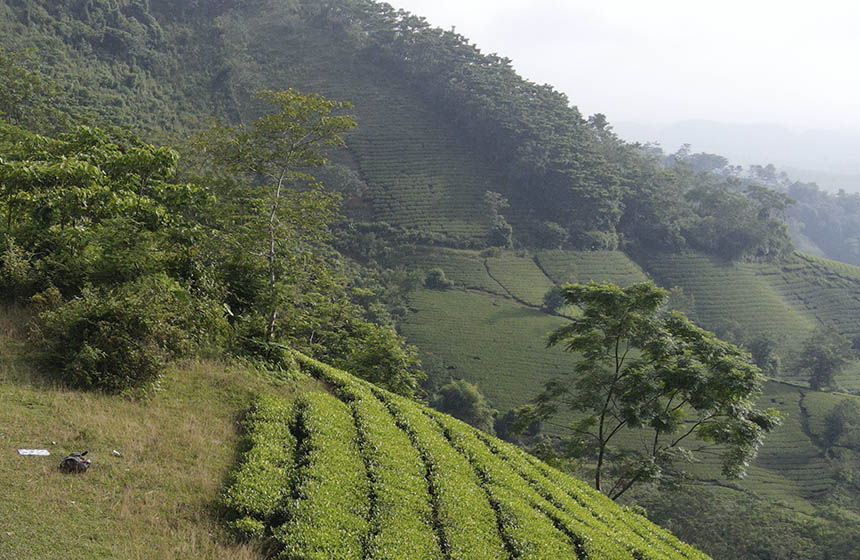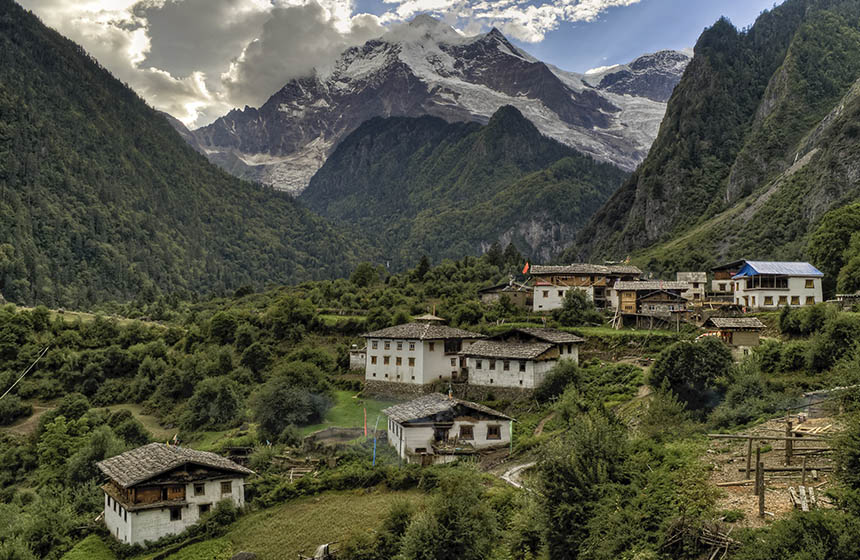Restoring ecosystem services for smallholder farmers
Reforestation and agricultural landscape restoration have been employed to reduce the impacts of climate-related hazards on local communities.
Nature-based Intervention:
An ecosystem-based adaptation pilot was conducted in So’n Tho commune, a mountainous area of Vietnam comprised of 75% forest and 15% agricultural land. The upper slopes of the landscape were planted with native timber species to restore lost biodiversity. The middle part of mountain slopes were planted with orange trees using pineapple and peanut pinto trees as contours. Nearly 12,000 seedlings were planted as well as forty hectares protected to restore the low density forest area of the commune. Compost from increased vegetation and agricultural output provided organic fertilizer for orange farmers.
Overview of context and outcomes:
Smallholder farmers depend on the landscape for various ecosystem services. Therefore, the ecosystem-based adaptation scheme aimed to reduce the risk of climate-related hazards including droughts, heat waves, whirlwinds, storms and ensure food security through increased agricultural resilience and forest restoration. Furthermore, farmers generated additional income from beehives placed in the forest that also contributed to pollinating trees.
Case effectiveness on
Climate change
Although not reported, it is likely that reforestation and improved landscape management will contribute to climate change mitigation on a small scale.
The reported improved conservation of local ecosystems and improved management of agricultural land will likely contribute to increased resilience in the face of climate change related hazards. Community members participating in focus groups reported improved regulating services including microclimate regulation, moderation of extreme events, reduced soil erosion, and better regulation of water flows.
Ecosystem health
Ecological effect: PositiveThe community has reported that 40 hectares of native forest are now better protected and 12,000 seedlings of native trees have been replanted likely contributing to restoring biodiversity losses.
Socioeconomic outcomes
Community members have reported the increased provisioning of food products and firewood and the regulation of water flows increasing underground water storage capacity. Community members attest that these provisioning services contribute to the food, water, and energy security of local households as well as providing additional income-generating opportunities. Furthermore, community testimony reports that increased agricultural productivity has allowed for the greater provisioning of medicinal plants.
Governance
The project is governed by the Son Tho commune which encapsulates a network of smallholder farmers within the region.
Finance
The pilot was funded by the Mainstreaming Ecosystem-based Adaptation in Vietnam programme.
Monitoring and evaluation
Researchers have studied the site and been given data relating to extreme weather events and yearly crop yields. Transects were also conducted with farmers to collected more granular datasets.
Trade-offs and limitations
No information yet available on tradeoffs.

Intervention type
- Protection
- Restoration
Ecosystem type
- Montane/Alpine
Climate change impacts addressed
- Loss of food production
- Other climate impact
- Freshwater flooding
- Wind damage
- Reduced water availability
- Soil erosion
- Reduced soil quality
- Loss of timber production
Instigators
- Not specified
Societal challenges
- Biodiversity conservation
- Climate change adaptation
- Disaster risk reduction
- Economic and Social development
- Food security
- Health
- Energy security
- Water security
Outcomes
- Food security: Positive
- Water security: Positive
- Health: Positive
- Local economics: Positive
- Livelihoods/goods/basic needs: Positive
- Energy security: Positive
- Disaster risk reduction: Positive
- Rights/empowerment/equality: Not reported
- Conflict and security: Positive
- No. developmental outcomes reported: 9
Resources
Read resource 1Literature info
- Peer reviewed



